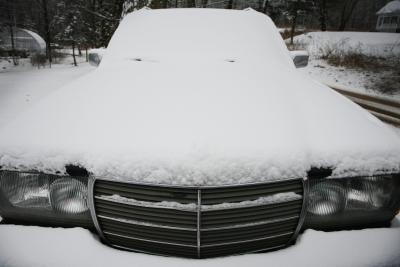
Headlights are essential to safe driving; without them driving at night is more than impractical, it's downright dangerous -- and it's illegal. As such, it's important that if your headlights burn out frequently you know why they're burning out and what you can do to make the replacement bulbs last longer.
One reason that a car's headlights burn out is that it is just their time to go. Many car headlights have tungsten filaments inside them, and as electricity passes through the filaments they heat up. Such filaments don't last forever, even under ideal conditions, and at some point the filaments simply break and the headlights burn out. Of course if conditions are not ideal it can cause the headlights to burn out even faster, but on average a lightbulb should last five to six years or so, unless you do more driving at night.
The tungsten filament inside the car's headlights isn't an extremely durable piece of metal, and it gets less durable the hotter it gets (or the longer your lights have been on). If you drive over rough roads, hit potholes or bump into things, then the lifespan of your car's headlights can get a great deal shorter. Even something as simple as closing the hood of your car can rattle your car's headlights to the point that it can cause your headlights to wink out because the tungsten broke.
Ambient temperature can have a major effect on the brittleness of the tungsten in your car headlight. The colder it is outside, the more brittle the tungsten becomes. And if it's cold when you turn on the headlight, the tungsten filament can get even more brittle than it already was. Such extremes can sometimes be enough for a headlight to burn out, but sometimes you might need some shaking in addition to the cold to really put your light out.
Most people don't realize that touching the glass portion of a replacement headlight bulb will leave oils on the glass that will cause it to fail prematurely. The oil on the glass superheats, causing the glass to break. Always install replacement bulbs with a clean glove or a paper towel.